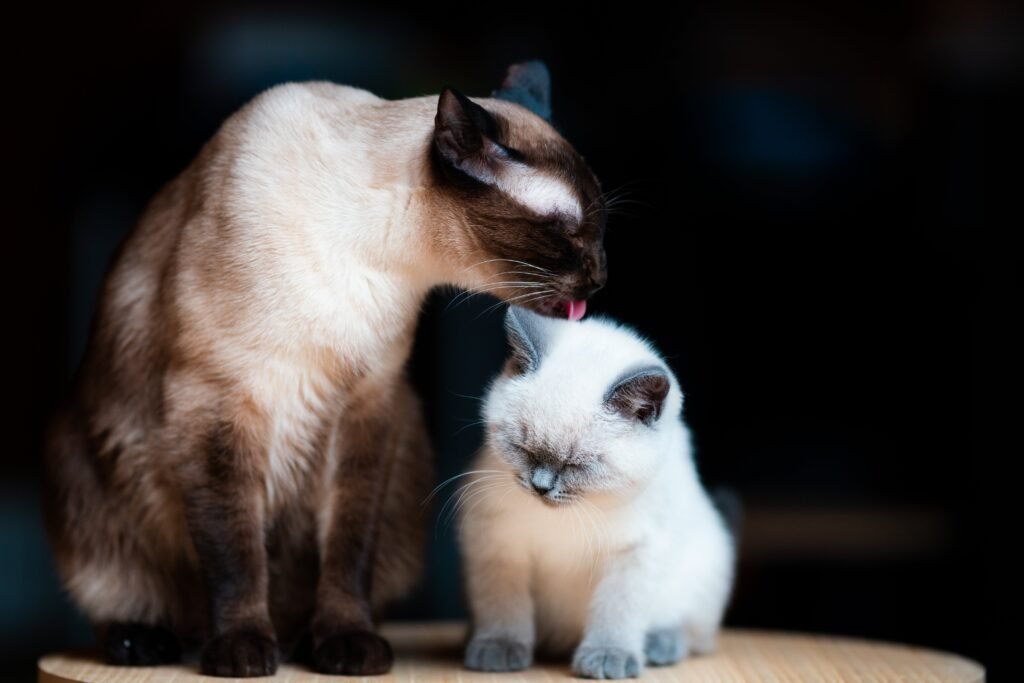Odd-eyed cats are known for their striking appearance: one eye is blue, and the other is a different color like green or yellow. These cats often catch attention because of their unique look, but along with their beauty come many myths and misunderstandings. In this post, we’ll explore what odd-eyed cats are, clear up common myths about them, and share some fascinating facts about these special felines.
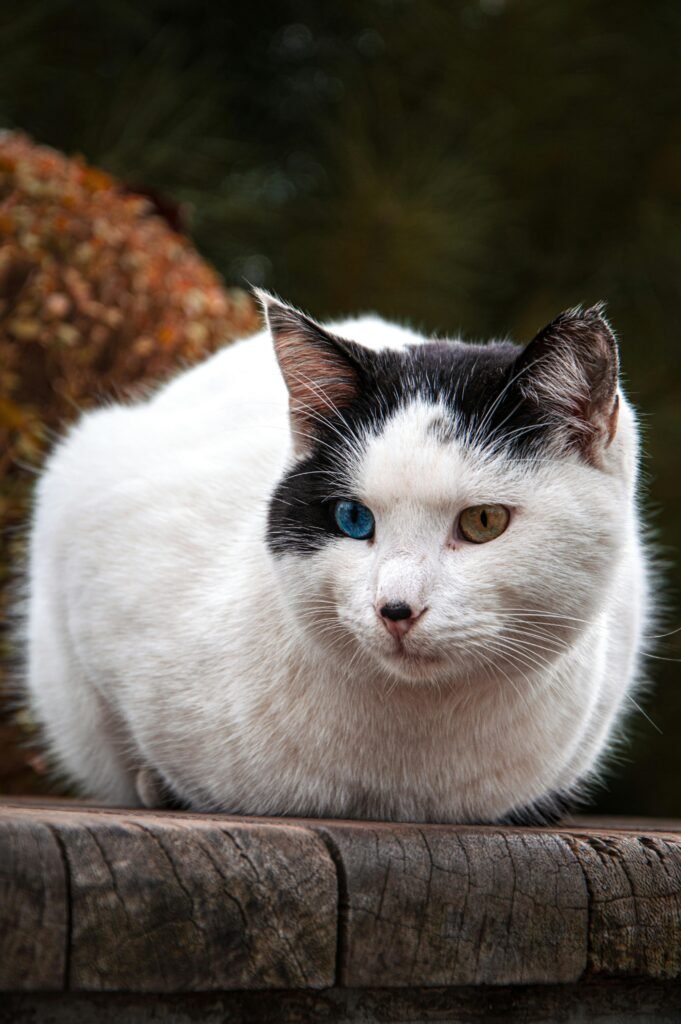
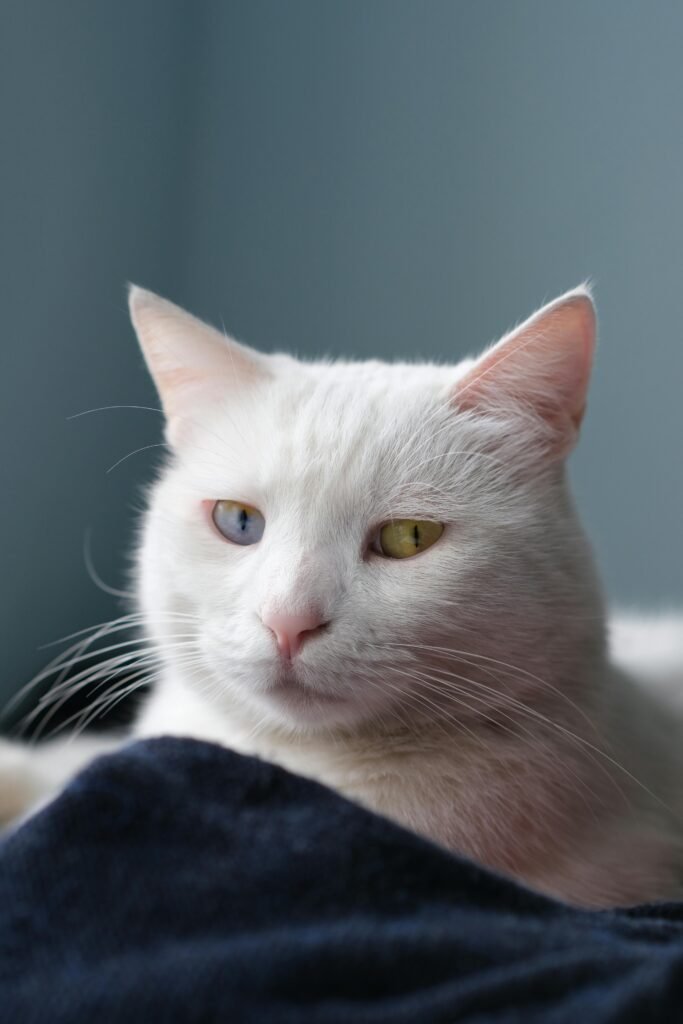
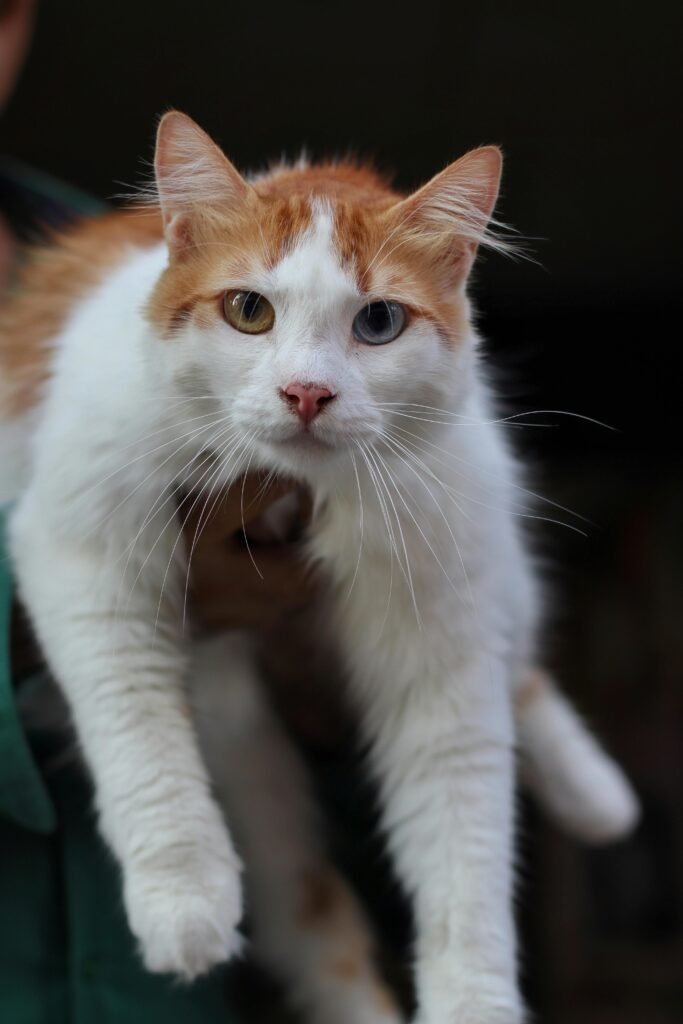
What Causes Odd Eyes in Cats?
Odd eyes in cats are caused by a condition called heterochromia, which means a difference in eye color. It happens due to genetics, where one eye has less pigment than the other. In cats, this is often linked to their coat color and breed.
Certain breeds are more likely to have odd eyes, especially white cats and breeds like the Turkish Van or Turkish Angora. But it’s not exclusive to these breeds—heterochromia can happen in any cat, regardless of their breed or color.
Myths About Odd-Eyed Cats
There are many myths surrounding odd-eyed cats, and it’s important to separate fact from fiction.
- Myth: Odd-eyed cats are deaf in one ear
One of the most common myths is that if a cat has one blue eye, they are deaf in the ear on that side. This isn’t always true, though it’s often connected to white cats with blue eyes. - Myth: Odd-eyed cats bring bad luck
Some cultures have spread the idea that odd-eyed cats are unlucky or cursed. This is just a superstition—odd-eyed cats don’t bring bad luck! - Myth: They are a specific breed
While some breeds like the Turkish Van or Angora are more likely to have odd eyes, odd-eyed cats can be found in any breed. - Myth: Odd-eyed cats have poor eyesight
There is no evidence to suggest that cats with odd eyes have worse vision than other cats. Their eye color doesn’t affect how well they see.
The Truth Behind the Deafness Myth
There is some truth to the idea that odd-eyed cats—especially white ones with a blue eye—may have hearing problems. In fact, white cats with two blue eyes are more likely to be deaf, and if they have only one blue eye, they could be deaf in the ear on the blue-eye side. This happens because the same gene that affects the cat’s eye color can sometimes impact the development of their inner ear.
However, not all odd-eyed cats are deaf. Cats with different coat colors or those without a genetic link to deafness often have normal hearing, regardless of eye color.
Are Odd-Eyed Cats Rare?
Odd-eyed cats are somewhat uncommon, but they’re not as rare as some people think. While white odd-eyed cats are the most recognized, heterochromia can happen in cats of many different colors. In fact, cats with other coat colors, such as tabby or black-and-white, can also have odd eyes, though it’s less frequent.
Breeds like the Turkish Van, Turkish Angora, and Japanese Bobtail are known to have a higher chance of odd eyes, especially in the white-coated variety.
Caring for an Odd-Eyed Cat
Odd-eyed cats don’t need any special care just because of their eye color. However, it’s important to be mindful of their general health, especially their eyes and ears. Regular vet checkups can ensure that any potential issues, like hearing problems, are addressed early.
If your odd-eyed cat has a blue eye and is white, it’s a good idea to have their hearing checked, as these cats are at a higher risk of being deaf. Other than that, they require the same care as any other cat.
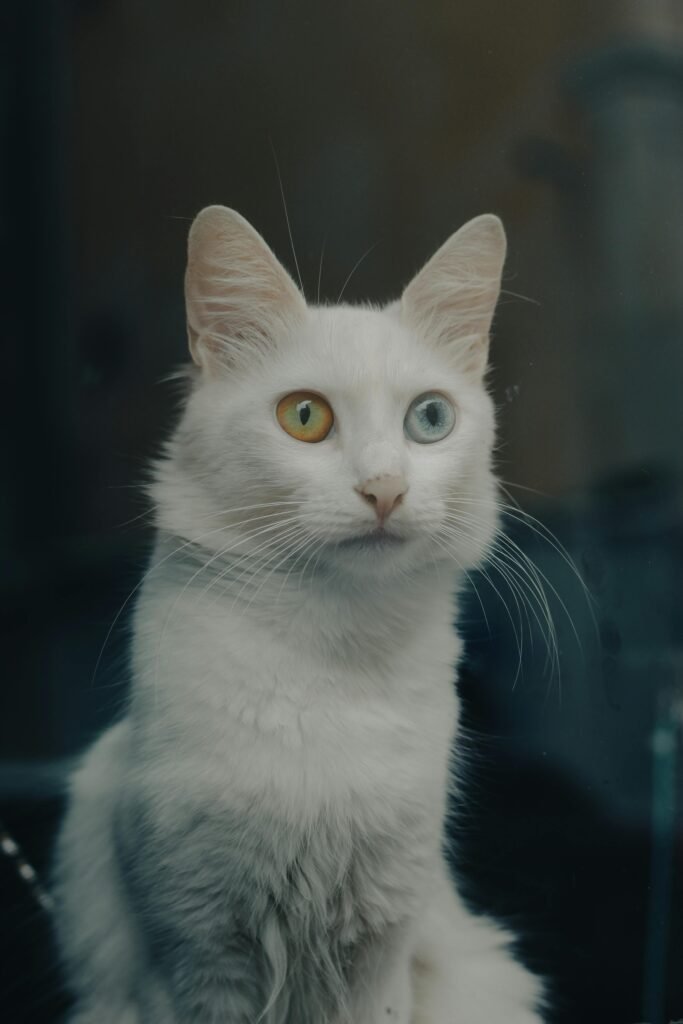
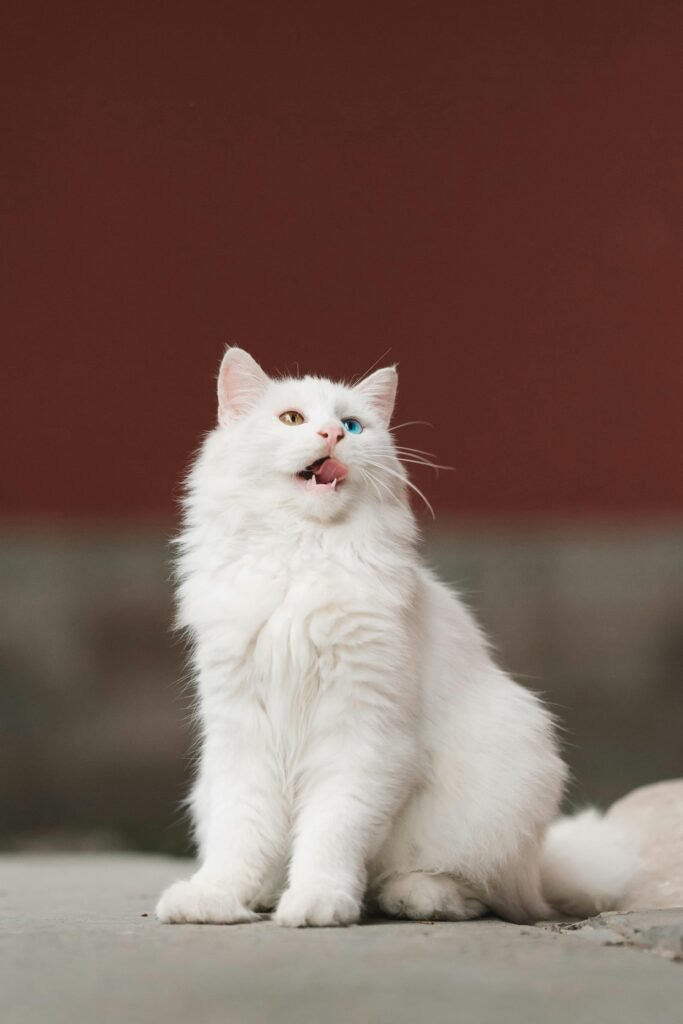
Do Odd-Eyed Cats Have Different Personalities?
There’s no scientific link between eye color and a cat’s personality. Odd-eyed cats are just as diverse in behavior as cats with matching eye colors. Their personality will depend more on their breed, environment, and individual temperament than their eye color.
Cultural Beliefs About Odd-Eyed Cats
In some cultures, odd-eyed cats are seen as lucky or mystical. For example, in Turkey, odd-eyed Turkish Angora cats are considered national treasures, and owning one is believed to bring good fortune. On the flip side, in other cultures, odd-eyed cats have been associated with superstitions about bad luck, though these beliefs are unfounded.
Odd-Eyed Cats and the White Coat Connection
Many odd-eyed cats are white, and there’s a reason for this. The gene that gives cats their white coat can also cause one or both eyes to be blue, resulting in heterochromia. This is why many odd-eyed cats are white, though it’s not exclusive—cats with other coat colors can have odd eyes, too.
Can Any Cat Have Odd Eyes?
Yes, any cat can have odd eyes, though it’s more common in certain breeds and coat colors. Heterochromia can happen in cats with different fur patterns or colors, though it’s much more noticeable in cats with white fur because of the striking contrast between their blue and colored eye.
Conclusion
Odd-eyed cats are unique and beautiful, but they’re also surrounded by myths. While some odd-eyed cats may have hearing issues, the idea that all are deaf or unlucky is simply not true. These special cats don’t require any special care beyond the usual love and attention, and they can make wonderful companions just like any other cat.
FAQs
1. Can odd-eyed cats see well?
Yes, odd-eyed cats typically have normal vision. Eye color doesn’t affect their ability to see.
2. Is it true that all odd-eyed white cats are deaf?
No, not all odd-eyed white cats are deaf, though white cats with blue eyes are more likely to have hearing issues.
3. Are odd-eyed cats a specific breed?
No, odd-eyed cats aren’t limited to a specific breed, though certain breeds like the Turkish Van and Turkish Angora are more likely to have odd eyes.
4. How common are odd-eyed cats?
Odd-eyed cats are somewhat rare but can be found in different breeds and colors, not just white cats.
5. Does having odd eyes affect a cat’s health?
Eye color itself doesn’t affect a cat’s health, but white odd-eyed cats may have a higher risk of hearing issues due to genetics. Otherwise, odd-eyed cats are generally healthy.


